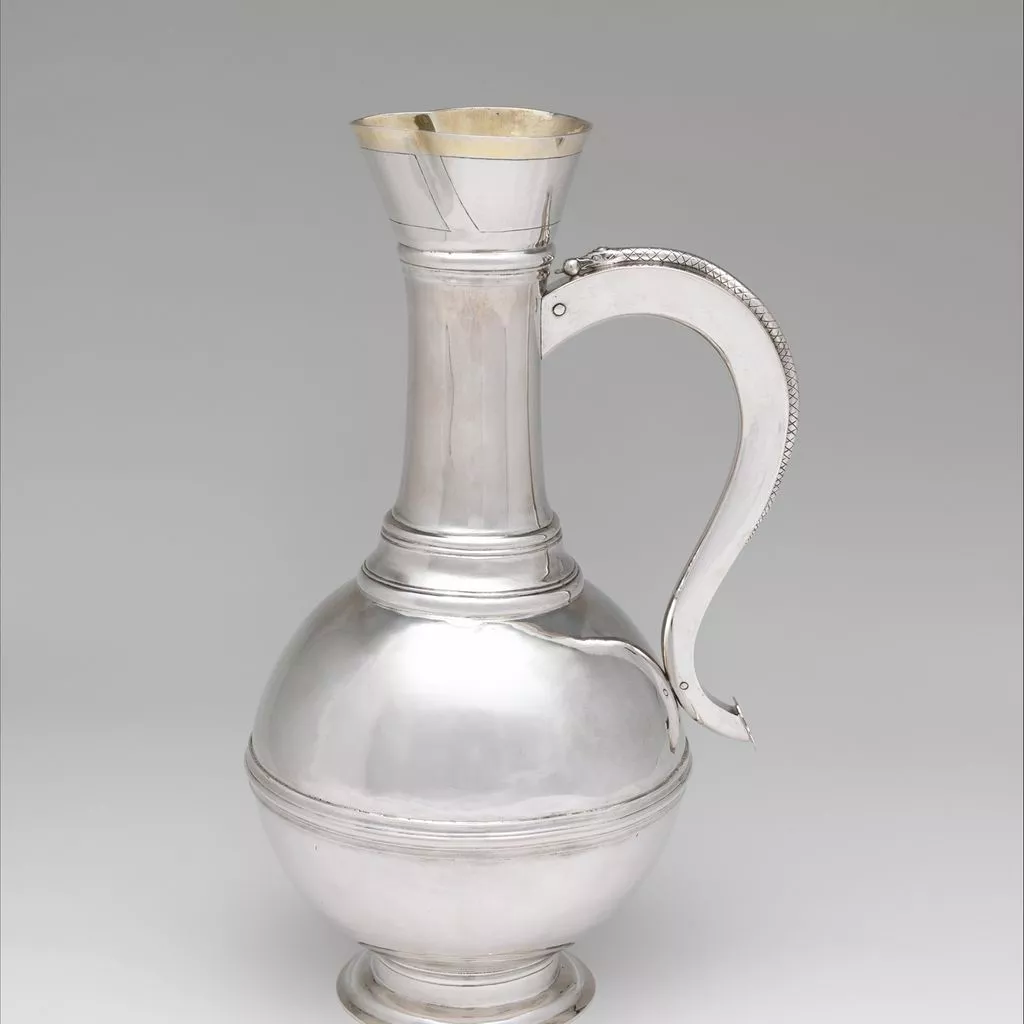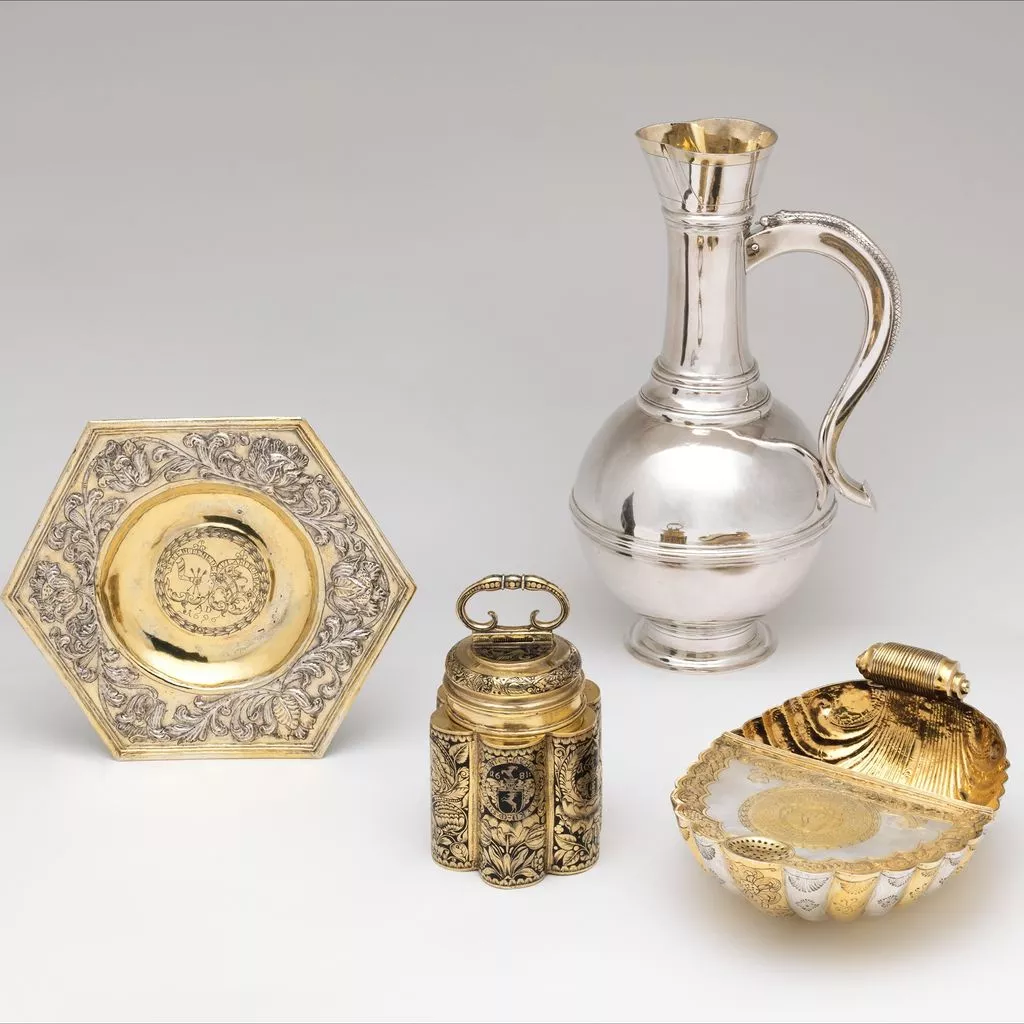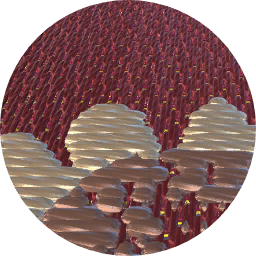Description
This decanter was used to serve mulled wine. The sculpted snake holding an apple in its mouth and resting on the scroll handle symbolizes temptation, serving as a warning not to drink too much. Restrained gilded lines emphasize the decanter’s harmonious form, and the spectacular design clearly signals the imagination and technical ability of the artist, who transformed valuable metal into a work of art. Less than a dozen related vessels have survived. Ambassador Salgo owned a second example (acc. no. 2010.110.61a, b). Another decanter is owned by the Prince of Liechtenstein and is prominently displayed in the family’s palace in Vienna (see Johann Kräftner, ed., Der Fürst als Sammler: Neuerwerbungen unter Hans-Adam II. von und zu Liechenstein. Vienna, 2010, pp. 144–145, no. 57). LiteratureCatalogue of Fine European Silver. Sale cat., Sotheby’s, Geneva, November 10, 1981, p. 69, no. 173.Judit H. Kolba. Hungarian Silver: The Nicolas M. Salgo Collection. London, 1996, p. 121, no. 98.Wolfram Koeppe in “Recent Acquisitions: A Selection, 2010–2012.” The Metropolitan Museum of Art Bulletin 70, no. 2 (Fall 2012), p. 29.ExhibitedErdély régi művészeti emlékeinek kiállítása az Iparművészeti múzeumban / Ausstellung alten Kunstgewerbes aus Siebenbürgen. Exh. cat. Museum of Applied Arts. Budapest, 1931, p. 23, no. 83.ReferencesElemér Kőszeghy. Magyarországi ötvösjegyek a középkortól 1867-ig / Merkzeichen der Goldschmiede Ungarns vom Mittelalter bis 1867. Budapest, 1936, nos. 1286 [town mark], 1473 [maker’s mark].Judit H. Kolba and Annamária T. Németh. Treasures of Hungary: Gold & Silver from the 9th to the 19th Century. Exh. cat. Cooper-Hewitt Museum, New York. Organized by the Smithsonoian Institution, Washington, D.C., and the Magyar Nemzeti Múzeum, Budapest. Budapest, 1986, p. 49, no. 52.[Wolfram Koeppe 2015]










